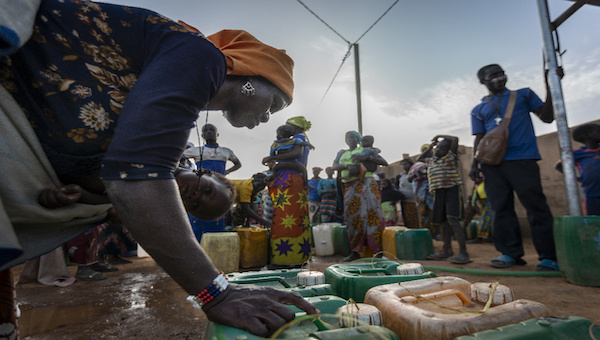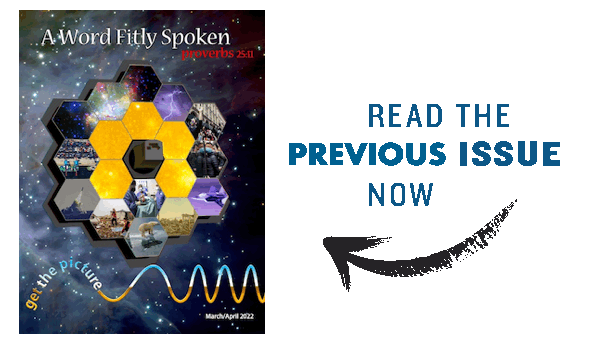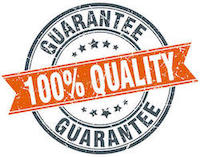 Burkina Faso has been in the midst of a humanitarian crisis since conflict broke out in 2016. A prolonged drought has only made things worse. Here, women stock up on water at a borehole in the town of Kaya, in central Burkina Faso. They can wait half a day just to fill two 10-litre cans. (Credit: ICRC/Samuel Turpin in Burkina Faso)
Burkina Faso has been in the midst of a humanitarian crisis since conflict broke out in 2016. A prolonged drought has only made things worse. Here, women stock up on water at a borehole in the town of Kaya, in central Burkina Faso. They can wait half a day just to fill two 10-litre cans. (Credit: ICRC/Samuel Turpin in Burkina Faso)
WATER: ‘A MATTER OF SURVIVAL’ IN CONFLICT ZONES
BY: KASMIRA JEFFORDSITE: GENEVA SOLUTIONS
TRENDING
Activism
Belief
Big Pharma
Conspiracy
Cult
Culture
Economy
Education
Entertainment
Environment
Global
Government
Health
Hi Tech
Politics
Prophecy
Science
Social Climate
Universe
War
Access to drinking water is a major problem around the world, but nowhere is it more challenging to ensure than in conflict-hit regions, the ICRC warned last week at the ninth World Water Forum in Dakar.
Gilles Carbonnier, the organisation’s vice president, told Geneva Solutions that while the forum traditionally focused on development, this year, the dangers of accessing water in conflict settings came to the fore.
Proof of this was the final declaration, signed by ministers and other stakeholders at the forum, which called on the international community to “promote the effective implementation of international humanitarian law”, which protects civilian objects vital for survival in times of conflict, including water.
Speaking to Geneva Solutions, Carbonnier unpacks some of the most pressing issues around water and conflict.
The World Water Forum wrapped up its ninth edition last week. What were some of the priorities and urgent issues that surfaced?
For me, one thing which really stood out is that everyone understands now that where it is actually most challenging to ensure access to water and sanitation is precisely in fragile and conflict affected contexts. The World Water Forum before was mainly about development and SDG 6 – ensuring universal access to water and sanitation.
What I sensed in Dakar is that everyone shared the view that where it is most important, but also most challenging to achieve that, is precisely in conflict contexts, for example, across the Sahel, the Lake Chad region, all the way to the Horn of Africa, and of course the Middle East and beyond.
What did the ICRC bring to the forum and what were you aiming to get out of it?
The ICRC as a humanitarian organisation brings its own expertise and experience of seeking to keep water infrastructure, provision systems, and wastewater treatment plants up and running, despite war or conflict. But over the years we see the need to partner with development actors so that we are not just maintaining systems that are about to collapse but also have others investing in upgrading and expanding them.
One aspect of this is to do with urban areas – how can we protect and upgrade the water provision systems in growing cities where, because of the conflicts, a lot of displaced people are coming from rural areas and flocking into the suburban areas of Goma in Democratic Republic of Congo (DRC), for instance. Or one can think of many other cities that have become a safe haven for people, like Maiduguri in the northeast of Nigeria, where suddenly, the population grows extremely quickly…. That's where we invest heavily but sometimes it’s just too much for a humanitarian organisation to do it alone. Development actors may be reluctant to invest because of the risks, or because of the weakness of institutions. But that's where we can work together to overcome these obstacles.
Do any examples come to mind where humanitarian and development actors already work well together on improving access to water?
Twenty-two years ago, I went to DRC to support the country’s water board and donors told the ICRC it shouldn't do this because this counted as development. It was at a time where you had different wars going on with the end of the Mobutu regime. So we approached development actors to ask them to preserve and support the water ports. But these actors told us they could not do it because DRC had not cleaned up its debt arrears.
So then, we did this work of supporting water provision in cities including Kinshasa and Goma because no one else was doing it. Today, we are working with the World Bank, with UNICEF, with the French development agency, and others to expand the water system in West Goma. We bring each of us our expertise, our means or resources, to work together and provide clean water and sanitation to about 300,000 to 400,000 people. So, there have been improvements but we still need to do much more and do it better. There are many other areas where we need to create these links between humanitarians and development actors, and where they are not there yet.
How did the war in Ukraine, where water infrastructure has come under fire and where inhabitants in cities like Mariupol have had to resort to desperate measures to access water, shape or come up in discussions last week?
The forum was a great opportunity to bring three different issues to the attention of ministers and development actors. The first is that in armed conflict, or protracted conflict, it is key to push parties to the conflict to protect and respect civilian infrastructure such as water points, water catchments, pumping stations, and water pipes. All of these are vital civilian infrastructure and it is protected under international humanitarian law.
The second is that, if you look at Syria for instance, we have long said that some of the water provision infrastructure is on the brink of collapse. But it is too big to fail because if it collapses completely, millions of people will have no more access to safe drinking water. So we are calling on the international community to find ways not only to continue trying to maintain a system that is about to collapse but also, after ten years if conflict, to invest in some form of early recovery or rehabilitating these vital systems so that they can withstand shocks.
And the third issue is really to work as we do, much more with local actors.
How has the ICRC been responding to the urbanisation of warfare?
Sometimes, in a war situation, we are the only organisation present. So we need to intervene in an emergency mode to make sure that such water provision systems in urban areas are up and running. You can think today of Mariupol in Ukraine where our colleagues, when they were still there, told us of people taking refuge in basements and where they had no access to any water or electricity. Some of them were having to bring some snow from outside to melt just to have some water to drink. So the situation is extremely dire. And the major issue here, again, is respecting international humanitarian law, and the Geneva Conventions – that belligerents protect vital civilian infrastructure such as water systems.
So, we work with the water boards and water utilities to help them to keep water infrastructure running. This is quite challenging because in urban areas these systems, like the electricity grid and the water systems are highly interconnected. The fact that belligerents are using heavy explosives with a wide area of impact in very densely populated areas is a major concern for us because it becomes very difficult to protect civilians and civilian infrastructure. So these are concerns that we continue to raise with the international community and states, because preserving access to water can be a question of life and death.
Click 3 Dots Below to View Complete Sidebar


